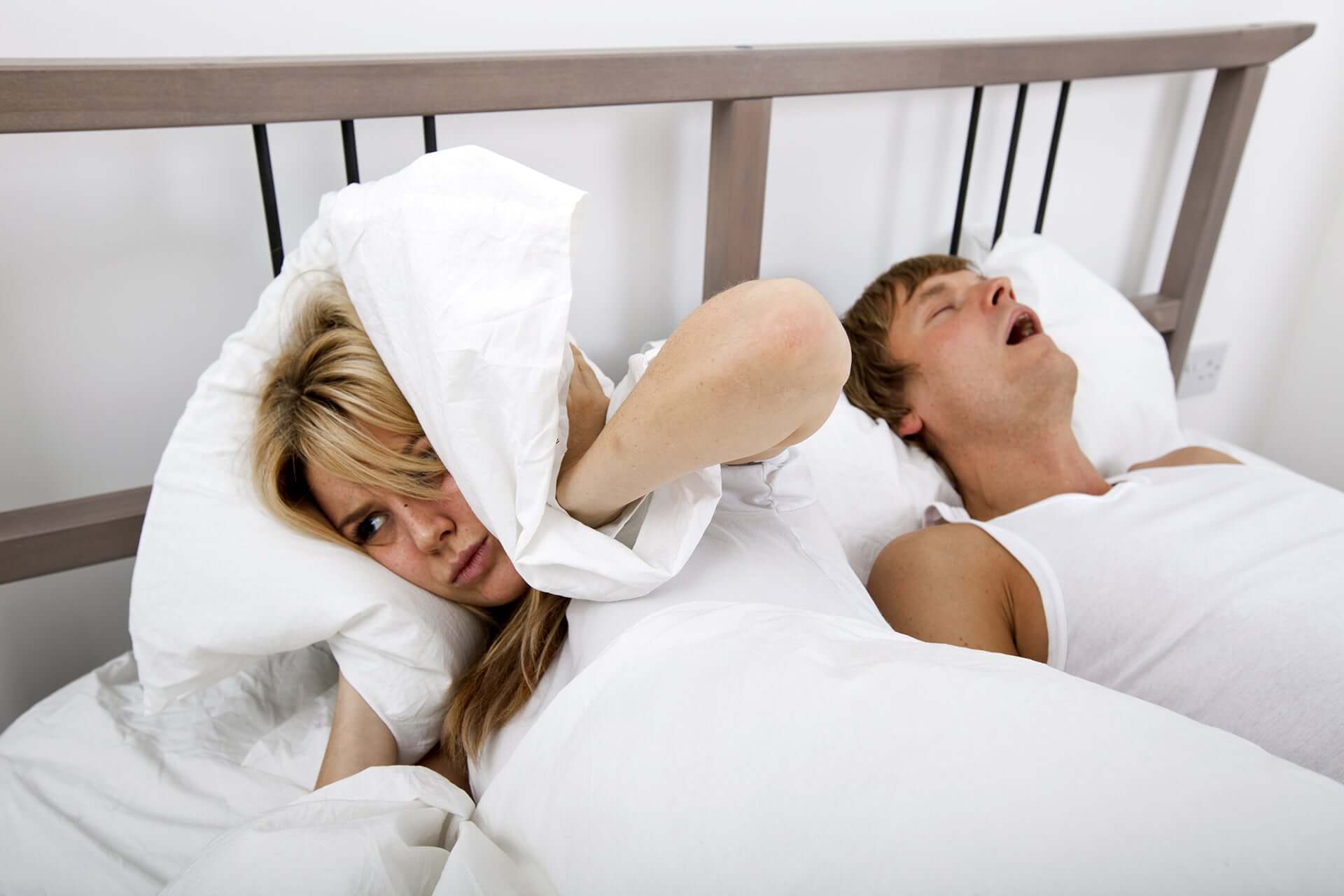More than fifty percent of American adults snore while sleeping. Snoring happens when air enters the throat during sleep breathing. During sleep, your throat begins to vibrate as air rushes past it, causing you to snore. Some individuals can wake themselves up with their loud snoring.
Your partner's sleep may be disturbed if you snore too loudly. Snoring is a sign that you may be experiencing more serious health issues. If it is a one-time occurrence, it may be a mild side effect of sleeping on your back or having a hangover. Some possible health problems include:
- Insomnia
- Insomnia Sleep Apnea (OSA)
- A weight problem
- An issue with your upper respiratory system
If you snore every night, it is recommended that you contact with a doctor. There are several potential causes of snoring. Some of these disorders may also be concerning for your health. Let's examine some of the causes of snoring and how to address them.
Obstructive Sleep Apnea
OSA, or obstructive sleep apnea, is the most prevalent cause of snoring. If you snore, there is a high probability that you have OSA. However, this does not imply that snoring necessarily indicates OSA. Because the symptoms manifest during sleep, this ailment is typically disregarded.
A total cessation of breathing during sleep is a sign of obstructive sleep apnea (OSA). This gap in breathing is so brief that a person might not recall it the following morning. A person with severe OSA may suffer these episodes over thirty times each hour. When the respiratory airway collapses momentarily as a result of loud snoring, there is an interruption in normal breathing patterns.
The individual gasps for air during sleep to correct the disruption in their usual breathing pattern. A sleeping spouse next to you can hear you snoring or gasping for air during the night. OSA is related with a number of additional health issues, including cardiovascular illnesses, high blood pressure, depression, and possibly neurological disorders. Inadequate sleep can sometimes make a person feel excessively drowsy during the day.
It is unsafe for those with OSA to drive alone for extended durations. It is exceedingly dangerous to allow someone with this condition to handle heavy machinery, as they may fall asleep at any moment. Continuous positive airway pressure (CPAP) is a treatment for obstructive sleep apnea that can be worn during sleep. The gadget eliminates snoring and the likelihood of sleep disruption due to a stoppage in normal breathing.
Alcohol
Alcohol is a depressant of the central nervous system and a muscle relaxant. As a depressive, it slows down brain activities and nervous system activity. Alcohol has an immediate effect of making you fall asleep considerably more quickly. However, this does not ensure that you will awake feeling refreshed.
Alcohol has a bad effect on sleep by relaxing the muscles in the throat and back of the neck. The muscles become so relaxed that they restrict the airway for respiration. This will have you chopping down trees in your dreams. Alcohol impedes the transition from light sleep to rapid eye movement sleep, often known as deep sleep (REM).
Every night, REM sleep is required so that you can awaken feeling rejuvenated. Without REM sleep, even if you get the recommended eight hours of sleep, you will wake up feeling exhausted and foggy. Lack of REM sleep has a direct impact on one's ability to recall information. If you have an essential task the next day, you might want to reconsider your overnight drink.
So, what's the verdict? Does alcohol induce snoring? Yes, you will create a racket in your sleep after a night of drinking. Unfortunately, the only answer is to refrain from drowning your emotions in alcohol.
Smoking
Every smoker is aware that smoking is detrimental to health, but do they know how detrimental? Obesity is the first factor a physician considers when attempting to identify the reason of snoring. If the individual has a normal bodily structure, smoking should be considered next. Did you aware that smoking significantly exacerbates snoring?
The throat and nasal linings are affected by smoking. Constant exposure to smoke and high temperatures causes swelling and discomfort. Due to the swelling, you are experiencing nasal congestion. Simply put, you will feel as if something is up your nose when nothing is there.
The same thing happens to your throat lining. You get the sensation of a lump in your throat. When your body is no longer actively directing your muscles and is merely performing routine maintenance, the situation worsens your sleep. If you quit smoking, will you immediately stop snoring?
As a person smokes, the respiratory airway muscles degenerate over time. If you have been a smoker for a long period, quitting will not immediately halt your snoring. It will take time for your body to restore the muscles in your respiratory airways. Two to three years after quitting smoking, your body may be indistinguishable from that of a nonsmoker.
Nicotine is an amphetamine. The nicotine in cigarettes prevents a person from falling asleep. Consider it similar to drinking coffee just before bedtime. You want to sleep, but the substances you just ingested are preventing you from doing so.
Another approach to the problem is to refrain from smoking after meals. Try not to smoke at least three to four hours before to bedtime. This is not a permanent solution to the issue, but it will significantly reduce snoring. Inhaling excessive secondhand smoke has the same effect on nonsmokers as it does on smokers.
Conclusion
Numerous American adults suffer from snoring, which can be harmful to their health. If you snore frequently, it is vital to contact a doctor. The most prevalent cause of snoring is obstructive sleep apnea (OSA), a medically treatable disorder. Additionally, alcohol and smoking can add to snoring, therefore it is best to avoid these vices. Continuous positive airway pressure (CPAP) machines can be used to assist in the treatment of OSA. Additionally, quitting smoking and avoiding alcohol helps reduce snoring and improve general health.


Share:
Do I Suffer From a Sleep Disorder?
Sleeping with a CPAP Mask: How to Improve Your Experience